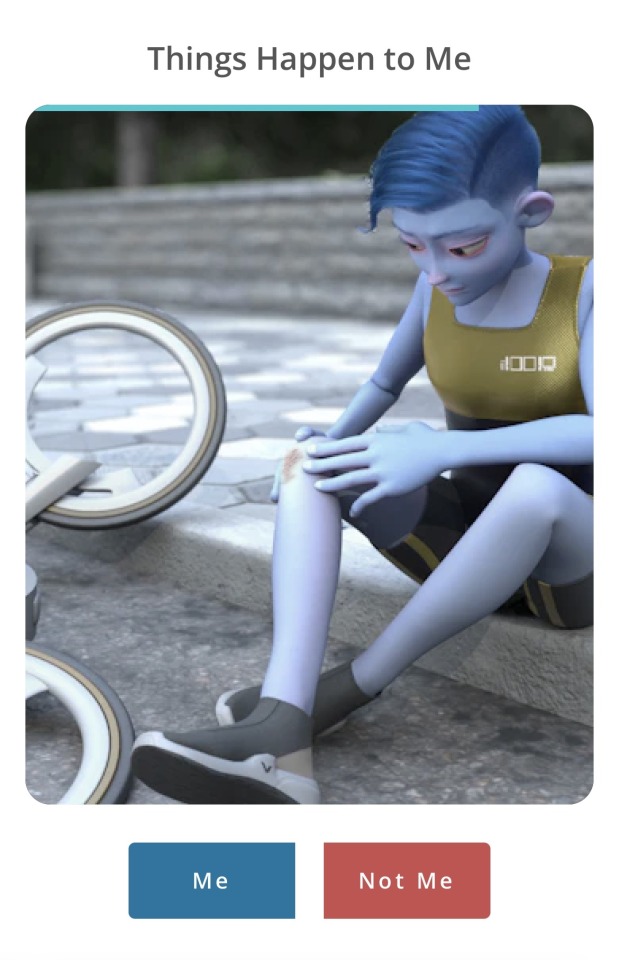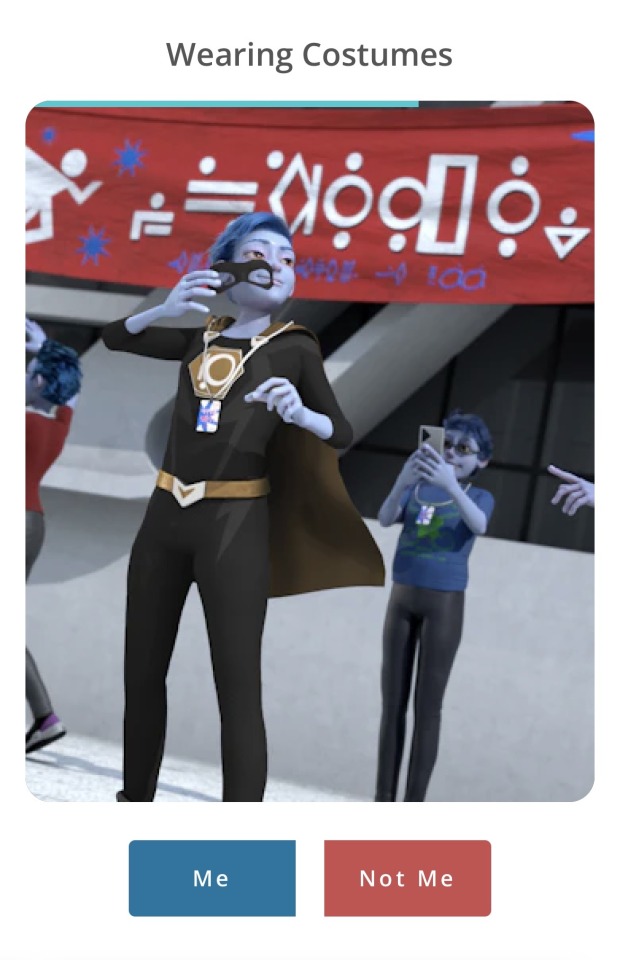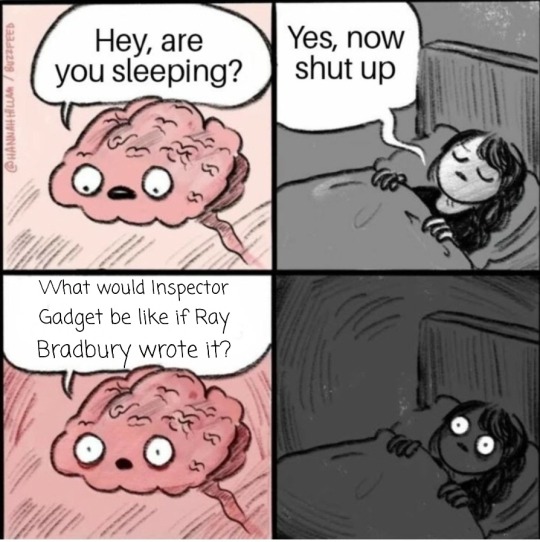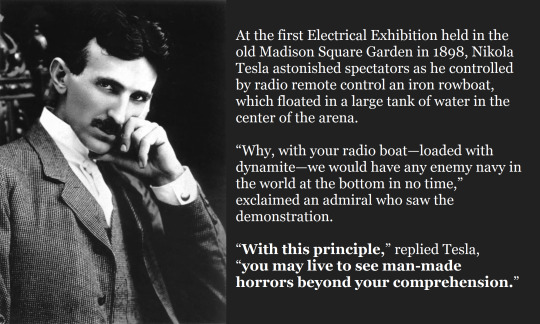#Technology Predictions
Explore tagged Tumblr posts
Text
The Future of Node.js: Emerging Trends and Predictions for 2024 and Beyond
Introduction:Node.js has been a dominant force in the world of web development since its inception, offering a powerful platform for building scalable, high-performance applications. As we move further into 2024, the landscape of web development continues to evolve, and so does Node.js. Understanding the future trends and predictions for Node.js is crucial for developers and businesses looking to…
#AI#Edge Computing#JavaScript#Machine Learning#Node.js#Serverless#Technology Predictions#web development#WebAssembly
1 note
·
View note
Video
youtube
The Future of Technology: 10 Predictions for the Next 20 Years
Welcome to our channel! In this captivating video, titled "The Future of Technology: 10 Predictions for the Next 20 Years," we embark on an exciting journey into the realms of innovation and speculate on what lies ahead in the world of technology. As we stand at the cusp of a new era, it's essential to explore the potential advancements and groundbreaking transformations that await us in the next two decades. Join us as we unveil our top 10 predictions for the future, based on current trends and emerging technologies. From artificial intelligence (AI) and robotics to augmented reality (AR) and quantum computing, we'll delve into the cutting-edge fields that are set to revolutionize multiple industries. Discover how these technologies will reshape our daily lives, from transportation and healthcare to communication and entertainment. Moreover, we'll explore the ethical considerations and societal implications that come hand-in-hand with these advancements. As we embrace the power of technology, it's crucial to reflect on the impact it may have on our privacy, employment landscape, and social dynamics. Throughout the video, we'll present compelling insights and expert opinions to provide a comprehensive understanding of the possibilities and challenges that lie ahead. Join us in pondering the future of technology and how it will shape the world we live in. Don't miss this opportunity to gain foresight into the exciting advancements that await us. Be sure to like this video, share it with your friends and family, and subscribe to our channel for more thought-provoking content on the intersection of technology and society. #FutureTech #TechnologyPredictions #Innovation #EmergingTechnologies #AI #Robotics #AR #QuantumComputing #EthicalTechnology #SocietalImplications #TechTrends #TechInfluence #DigitalTransformation #StayInformed
#youtube#future tech#technology#technology predictions#innovation#emerging technologies#ai#robotics#ar#quantum computing#ethical technology#societalimplications#techtrends#techinfluence#digital transformation#stay informed
0 notes
Text
Jason pretending to be a caricature of himself to see how inept/evil his family seriously believes him to be. Yes Tim I am going to kill babies to help poor people that is a real plan I have that I am going to do. Also help me change my Facebook status.
No one ever questions it though, and eventually it just becomes something he does- a defense mechanism. Bruce’s rejection, Dick’s barbs when he loses his cool, the others’ well-meaning comments and dismissals.. they can’t hurt him as much if they don’t really know him.
#Jason never tells anyone about Sheila and why the fuck would he#jason todd#this was initially a reaction to yet another technology-illiterate Jason post but it turned into angst because I am predictable
723 notes
·
View notes
Text
I've been thinking about if, instead of morphing to affect/control sparks with his voice, if Tarn's outlier ability had stayed touch based but grew more and more dangerous over time :)
#transformers#maccadam#mtmte tarn#mtmte Damus#mtmte glitch#same guy#like#he started out with the ability to destroy/dismantle inanimate technology with a touch#it'd be less of a leap to have that go straight to being able to dismantle living mecha with a touch_ rather than involving the Voice route#.....though.#what if#and hear me out#the Tarn //isn't// Glitch/Damus_ but another outlier spark who was put in the same frame and given the same memories??#the processor is the same_ but the body's been rebuilt a few different times now_ and this is a new greenspark#one that's predicted outlier ability was theorized to be... more easily harnessed than Damus's previous ability#I'm not saying that happened but I am saying it'd be fucked up#it'd also make Tarn a hybrid spark in this situation_ like Megatron is#(tbh the parallels there considering the time travel arc could be a Thing)
24 notes
·
View notes
Text
Moderns who wanna be trad, really shouldn't pick the 50s to do it about if they wanna call themselves trad.
There was nothing "trad" about the 50s. First of all, the idea that women don't work and aren't involved in actual *production* let alone household production, was relatively new and... to a large degree, downstream of much of pre-war household production being augmented by technology and mass production. the idea that a household of five people could be supported on 40 hours a week, without the wife and children also being involved in production, was absolutely downstream of technology. So was a woman running a house without having to have a team of servants.
The "nuclear family" was a stepping stone toward atomization, in an economy that lasted for about... five minutes. It literally was a cultural artifact lasting twenty years only.
And it was futuristic as fuck, and downstream of technological innovation, not a return to the golden days, which most people actually remembered as quite horrible.
If you really wanna live in the spirit of the 50s for any reason but the shittiest and most sexist/racist parts of it, you'd want several Roomba's and a self driving car and would be the world's most annoying space nerd.
And you'd be great with stronger unions and you'd probably be okay with vaccines
#the reason people SHOULD read 50s sci fi is to know that the authors of the past very very accurately predicted lots of our tech#this wasn't psychic powers#fucks sake a chunk of them were involved in working on that technology for their day job#two way video screens - wifi - automation - etc were inevitable to people working on that tech!
58 notes
·
View notes
Text
I tell myself that someday these will be valuable collector's items, instead of just an annoying printing error.

Remember that "black hole between the pages" glitch? I found more copies at the bottom of the box with it. Time to print out more little ~collector's item~ leaflets with the missing text. Sigh.
#indie writer life#this remains one of the strangest errors I've encountered#and the most aggravating because there was no way to know it was there#without reading the whole book again#which I'd already done so many times. with no glitch.#OH WELL learning experience#and I know how to fix it if it shows up again#if not how to predict it#sometimes technology likes to cause problems for fun#this is one of those times#A Swift Kick to the Thorax#I'm very lucky that the missing text wasn't something important#could have been much worse
21 notes
·
View notes
Text
I feel like, when sci-fi stories get too high-concept, they start sounding like little children in the playground going, "THEN I USE MY DEATH RAY!" "THEN I USE MY SUPER SHIELD THAT STOPS DEATH RAYS!" "THEN I USE MY SWORD THAT CUTS SUPER SHIELDS THAT STOP DEATH RAYS!"
#You need. limitations.#you ALWAYS need limitations.#without limitations there's no stakes!!!#and there is also no way to FOLLOW YOUR STORY#when you get to a point when you can just pull godlike technology out of your ass#then I can't predict how anything's gonna go#and I can't judge what's happening against the rules of the universe#BECAUSE THERE ARE NONE#and then it's not a story anymore. it's more like a thought experiment.
9 notes
·
View notes
Text
Notes on Pluto shift into Aquarius:
-Pluto has been in Capricorn for the past 20 years. On March 24th, 2023 it will finally move in Aquarius. (First for 3 months- then it will retrograde back into Capricorn. It will move into Aquarius in mid November of 2024 and stay in Aquarius.) This shift will do many things for our government and changes in currency. It will also affect our weather patterns drastically, adding an emphasis on unpredictability factors regarding weather events known to specific areas.
Weather change predictions:
Over the next 5 years (especially), the once heavily predicable weather patterns will completely change course. I see storms reaching new levels of disaster, the first ever E6 tornado on record, earthquake events increase with more rain and flooding events being recorded. This prediction is localized to the West coast of America. Lightning storms and damaging lightning events will increase everywhere, including outside of America. And as temperatures continue to rise, so will the seas. This flooding out the coastline city’s of most continents on the planet.
Keeping in mind- with the changes in patterns, certain insects or animals may move locations over this time in order to survive in habitable locations. Expect a rise in new insects and animals (mainly birds) in your location.
Why only 5 years for these predictions?
⁃ Well to put it simply, the next 5 years will be the transition period for Pluto. This sets us up to understand fully what to expect by the midpoint ( which is about 10 years).
⁃ During transitional periods the themes of the transit push themselves into the surface. Refuse to be silenced or ignored. This energy with Pluto adds to the chaotic amount of unstopped change. And with Pluto in the sign Aquarius, is a statement saying very loud expect the unexpected. Aquarius is known as the water barrier- that’s why it will affect things like rainfall, and tide changes. It being an air sign, and having energy that likes pushing limits and making a new category where it will fit, this is how I was able to predict the first E6 on record.
Non weather changes prediction timeline:
⁃ all bills being paid online, offering bigger deal incentives for paperless route. Marketing increases on paperless billing and apps to help pay bills for those more resistant to turning.
⁃ The rise of humans choosing to get chipped and giving up credit cards, drivers license, health insurance card, house keys etc. Instead all information is within the chip. This trend will start on social media and ‘blow up’ via influencers, controversy, and sociological divisions. Some get the chip, some refuse. By the end of the transit many accommodations will be made for influx of chipped citizens. New technology developed to further the expansion once the populations hit 50% chipped.
⁃ Influx in reprogramming citizens to get chipped by 16-20 years of transit. Social media influencers and celebrities being paid off to Alienate those who refuse to get chipped. This sure enough changes the popular opinion of being chipped. Lessening the amount of power the voices who fight this change have in media. They become a part of “cancel culture”, and those who speak down on these divisions frame them as old, outdated, and “stuck in the past”. They also greatly inflate the amount of power “the younger generations have now”.
⁃ by it’s completion, and into the transition period of Pluto in Pisces, paper money will be considered an antique, making its values increase and causing people to get chipped for financial benefits. At the same time, the U.S government has been slowly removing cash within the economy, thus pushing the chip.
⁃ The great influx of new technologies, built from space matter, and secrets deciphered in space.
⁃ Shift from chip to retina scan.
⁃ Air quality decline throughout transit. This may improve during Pluto in Pisces.
A look ahead: (2043-2067)
⁃ Pluto in Pisces: it is important to note that during this time the main shift will be the attitude towards money. The once heavily known “hustle” society that was found in America will be slowly deteriorating throughout this transit. Instead people will be focused more on quality of life, and living self sufficiently.
⁃ A rise in spiritual abilities being confirmed and normalized within modern media.
⁃ A possibility of sabotage of peace, with the release of new drugs. A rise in drug addiction.
⁃ A rise in practical, and common introspection. Those within their prime during this pluto transit will seem more insightful, intuitive, and advanced than others that came before.
⁃ A rise in charity work and funding for mental health and drug addiction.
⁃ Major psychological developments found to help those struggling with mental health disorders and disease. The discovery of the neurological and genetic makeup needed for schizophrenia and bipolar to thrive.
⁃ This new information will help the next generations prevent passing down the specific genetic factors to prevent schizophrenia from presenting.
⁃ A rise in great artwork and music, some of the greatest artists from this time will also struggle with drug addiction, or mental health.
⁃ The rise of a new perspective of lifespan, focused on creation and appreciation.
⁃ More technology created to go further into space, and the first colonization of humans in space. A lot of secret projects sending families to new planets to study and discover if it’s habitable for humans.
⁃ Sea levels rise drastically. Venice will be underwater by the midpoint of this transit.

#astrology#aquarius#pluto#predicting#predictions#Pluto shift#weather#technology#future#notes#hurricane season
12 notes
·
View notes
Text
i just had to take this ai personality test to submit a job application (to be a bartender).




#the end of our society is upon us yall#i think it’s so funny that so much of imaging our future with technology (sci-fi) branches off into two subsection#A. technology gets so advanced that it becomes the governing (tyrannical) power#or B. technology aids humanity in developing a star trek esque utopia of convenience and luxury#but i don’t think anyone predicted this#this weird dependency on technology (especially AI and other ‘smart’ tech) thats actually just shit#like yeah tech is replacing human jobs and doing it worse and less convenient#it wasn’t that long ago when you could call up any store and a real human being would answer#like… 5-10 years ago??#do you remember when you could walk into a store and get a job application and fill it out by hand#in order to get to this ‘personality test’ stage i had to chat with an AI virtual assistant#and then make an account and (after verifying my email of course) filled out my online application (again…)#and then i had to take this personality test#all so i can continue serving ppl highballs and beer??#its sad to see how normalized this is now#anyway as frustrated as i am by the state of the world#i’m choosing to laugh at how fkn dumb this ai test is#i’m gonna post more pics in a sec
18 notes
·
View notes
Text
youtube
#youtube#trump#ethereum#solana#xrp#eth#bitcoin news#donald trump#bitcoin analysis#crypto news today#crypto news#Bitcoin#Bitcoin Reserve#Digital Assets#Strategic Reserve#Trump Administration#Financial Technology#Cryptocurrency#Crypto Regulation#Cryptocurrency News#Financial News#news#xrp price prediction#fintech#bitcoin#trump crypto#white house#digital assets#Digital Assets Summit#politics
6 notes
·
View notes
Text
in my childhood, i was gifted one of those books of random facts. one of them was about 'famous doctors' in media, one of them being doctor who, with a short explanation below - that he's actually not really a doctor, but an eccentric alien with two hearts, who helps humanity.
however, as a kid with no acces to british television and basic level of english, facts mixed in my head, and i became convinced that the fact was refering to doctor House, from the famous show doctor house, which my mom watched sometimes. so everytime i hung around and it was on the tv i looked at it and thought "damn, that's pretty stressful. not only is this guy puking his guts out but they'll have to deal with aliens at some point"
#i spent an embarassing amount of my life convinced that house was the one with two hearts. and is an alien#which made him knowing the diagnosis predictable because yeah alien technology am i right#i couldn't place if the others knew about him being an alien or not#i only realised my mistake when we got bbc and doctor who was on. and in this episode he talked about having 2 hearts#and i was like. now hold on a second#doctor who#dr house
18 notes
·
View notes
Text
a young person has been trying to explain how to type on my phone like a young person does (they use their thumbs, wtf?) and i have not yet done it enough to see improvement but i need to report my shock that using your thumbs does not seem to be worse than using the typing finger of the hand that isn't holding the phone. this seems MADNESS as thumbs are the wide fingers! and yet. i suppose if that's the way they're supposed to be used (phones, not thumbs) they probably make phones with that in mind. that you're using your widest fingers on the tiny tiny keyboard. insanely.
#don't worry i can say insane because i am#i also turned predictive text back on which i may soon regret but we'll see how that goes.#i am NOT a boomer-level phone user! that's my dad who holds it at arms length and doesn't even try to reply to text messages.#i am just Millenial Level by which i mean i assume the snake game is on the phone somewhere and i worry about texts getting Too Long.#oh no i have filled the memory completely by having 8 saved text messages! i must delete some so i can play the snake game again!#the internet?? but there's no cable on this phone how would the internet get to it? through the AIR?! ha ha ha ha!!!! as if!!!#technology#it me#anyway this could unlock whole new kinds of typo in the notes i make on my phone to remind me of things. EXCITING!
7 notes
·
View notes
Quote
The criterion of common sense was never applicable to the history of the human race. Averroës, Kant, Socrates, Newton, Voltaire, could any of them have believed it possible that in the twentieth century the scourge of cities, the poisoner of lungs, the mass murderer and idol of millions would be a metal receptacle on wheels, and that people would actually prefer being crushed to death inside it during frantic weekend exoduses instead of staying, safe and sound, at home?
Stanisław Lem, The Futurological Congress
115 notes
·
View notes
Text

Shower thoughts today.
#memes#shitpost#inspector gadget#ray bradbury#for those wondering. Ray had some strong feelings about enhancing technology and stuff. he wrote Fahrenheit 451 which TERRIFIES ME#BRO STOP CORRECTLY PREDICTING THE WAY SOCIETY WORKS YOU'RE SCARING THE HOES#anyway im saying that his version of the silly cyborg show would be VERY interesting
20 notes
·
View notes
Text

Nikola Tesla, the Prophet of Drone Warfare
#nikola tesla#tesla#drones#drone#ukraine#ukrainian#russian invasion#warfare#technology#futurism#predictions#robotics#robots
4 notes
·
View notes
Text

From 1969 - an unusual television screen.
#vintage illustration#vintage books#children’s books#magazine art#magazine illustrations#future predictions#the future#the future is now#vintage tech#technology#vintage technology
13 notes
·
View notes